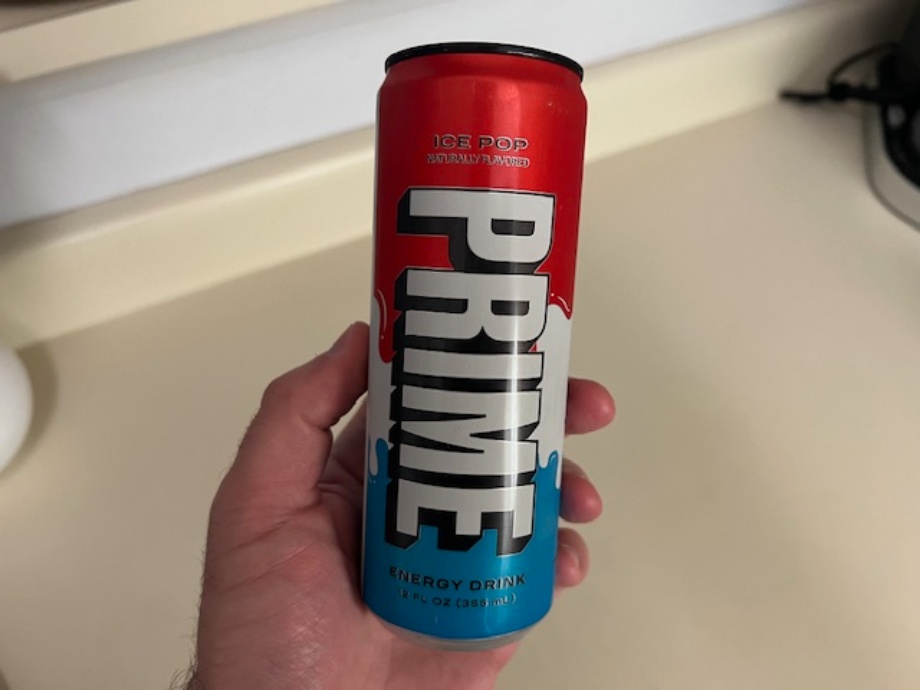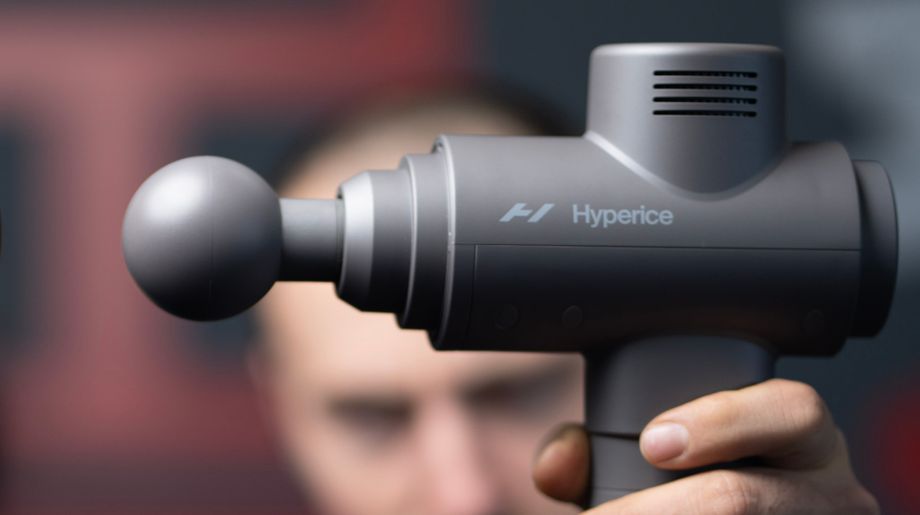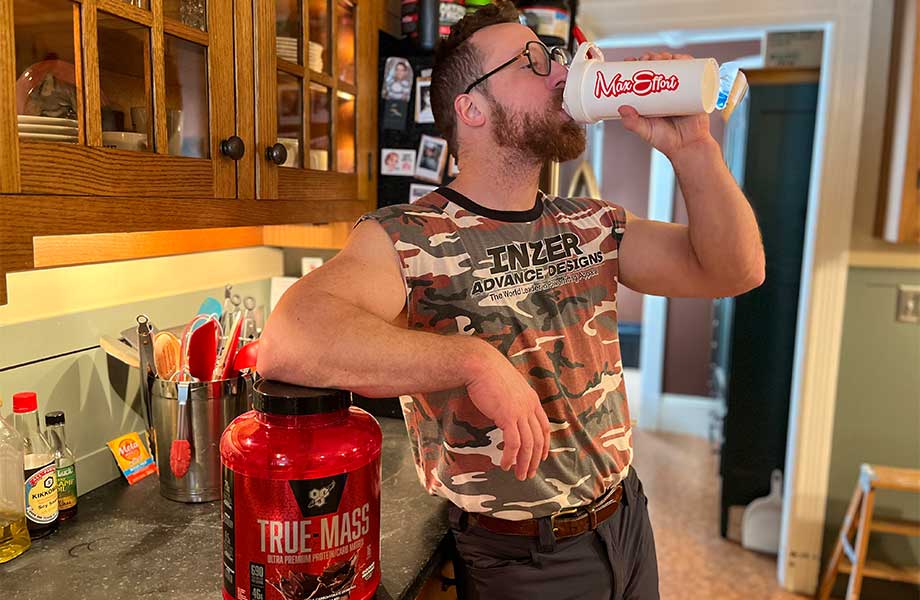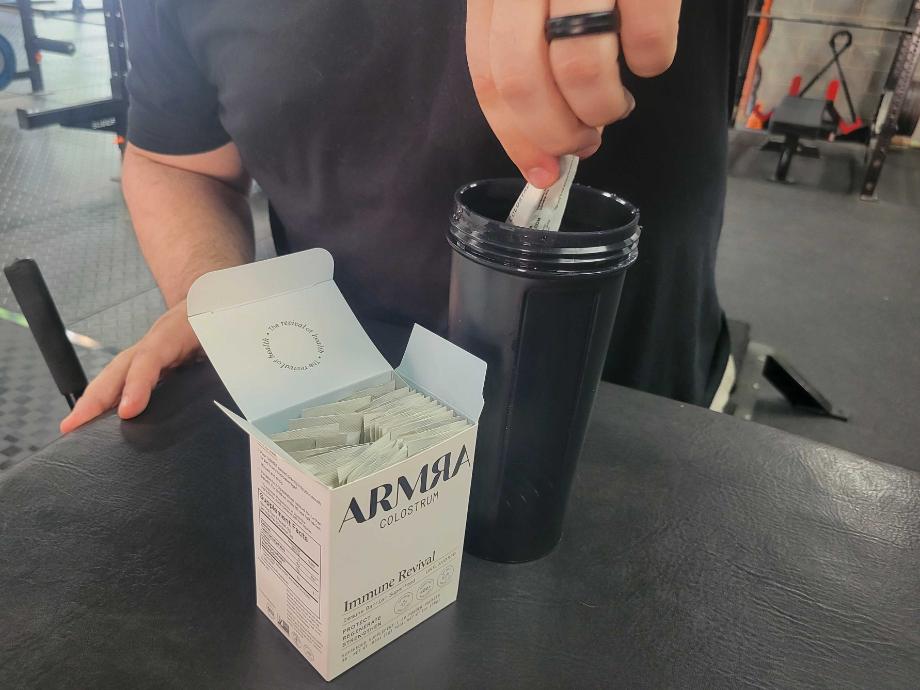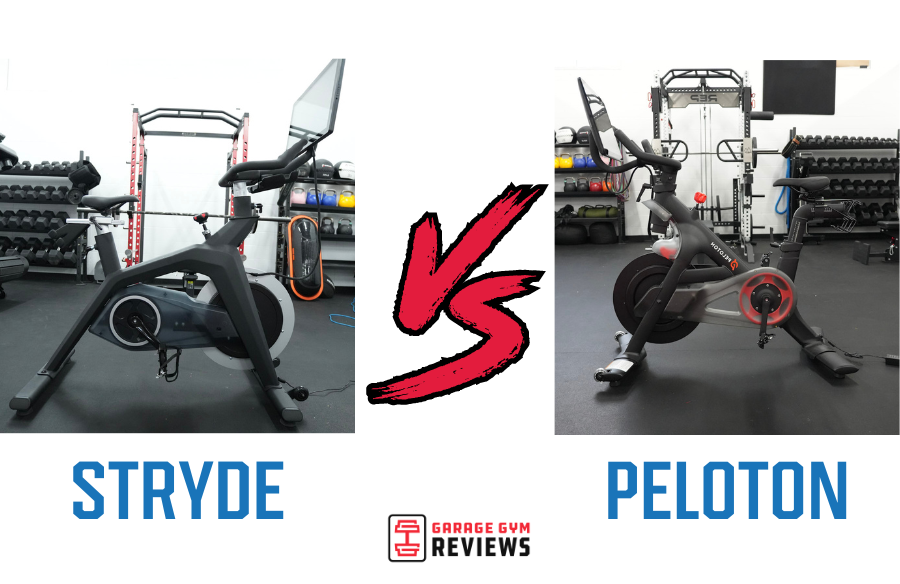For this PRIME Drink review, we had the popular TikTok drink tested by Matt Dustin, CES, PN1-NC. Due to its association with “YouTube royalty,” there’s a lot of hype around PRIME products, so we had some fitness and nutrition experts look it over.
RELATED: Best Pre-Workout for Men
Zero sugar energy drinks are more popular among those working toward weight loss or otherwise restricting calories. That’s because they are a way to boost energy levels without consuming caloric drinks like lattes and sugary beverages. That said, there’s some controversy about these drinks being detrimental to our wellness due to poor formulation and quality. Let’s see how PRIME Energy Drinks stack up based on our experience.
Medical disclaimer: This article is intended for educational and informational purposes only. It is not intended as a substitute for medical advice. For health advice, contact a licensed healthcare provider. GGR also recommends choosing a product that has been third-party tested for quality.
Our Experts Help You Separate Hype From Hoax
Don’t trust social media to inform you on what’s best. The fitness professionals, registered dietitians, and personal trainers on Team GGR take pleasure in personally testing each nutritional product to provide you with an honest picture of the products we review.
We rate products using a scale of 1 to 5 based on our custom GGR supplement testing methodology. This methodology examines criteria like:
- Quality of the formulation
- Taste/solubility
- Side effects
- Third-party testing
- Price/value
- Customer reviews/service
PRIME Energy Drink
PRIME Energy
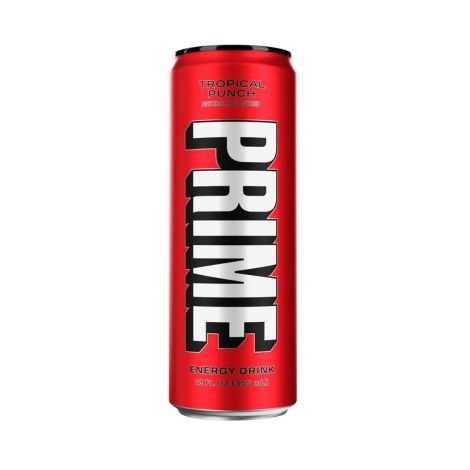
Product Highlights
- Vegan energy drink
- Founded by YouTubers and entrepreneurs KSI and Logan Paul
- Includes electrolytes and coconut water
- Available in 8 flavors
Pros & Cons
Pros
- Gluten-free
- 0 g of sugar
- 8 different flavors that are positively reviewed by customers
- Available in a wide variety of stores, including grocery and convenience stores
Cons
- Contains sucralose
- Customers report receiving damaged cans when shipped
- Can is smaller than the 16-oz can that other energy drinks come in
Bottom Line
PRIME Energy is a vegan energy drink that features coconut water and electrolytes. Customer reviews of this drink were extremely positive—they really enjoyed the taste. However, some customers who purchased via Amazon complained about receiving dented and damaged cans.
A Quick Look at PRIME Energy Drinks
PRIME is an American brand that was created by purported YouTube rivals Logan Paul and KSI. It started with PRIME Hydration Drink in 2022 which sought to rival mainstream sports drinks like Powerade with their now-iconic flavors like Meta Moon.
Their hydration drinks even contain branched-chain amino acids. Now, the duo is in the energy drink business with beverages that contain both caffeine and electrolytes without any added sugar.
Before You Buy
- Think carefully before ordering online, as Amazon offers no refunds and you have to commit to a case of 12.
- Those under the age of 18 should only try Prime Energy Drinks with adult supervision.
Are PRIME Energy Drinks Worth It?
Though the inclusion of electrolytes can be appreciated, it’s just not enough to justify the higher-than-average cost of $2.50 per can when compared to other, comparable energy drinks. That said, we were impressed by how great the drinks taste and the solid buzz you get from taking them, so it all depends on how much you’re willing to pay to buy into the hype.

RELATED: Bang Pre-Workout Review
Great for:
- People looking for a great-tasting way to get a midday energy boost
- Those who prefer zero sugar energy drinks
- Anyone who can benefit from a mild dose of electrolytes
Not recommended for:
- People who avoid consuming artificial sweeteners
- Those under the age of 18
- Individuals looking for a solid electrolyte beverage for rehydration
PRIME Energy Drink Specs
| Price per serving | $2.50 |
| Serving size | 1 can (12 oz / 355mL) |
| Flavors | Blue Raspberry, Dream Pop, Ice Pop, Lemon Lime, Orange Mango, Original, Strawberry Watermelon |
| Caffeine content | 200 mg |
| Sugar per serving | 0 g |
| Sweeteners | Sucralose, Inositol |
| Other key ingredients | Coconut water, L-Theanine, Taurine, Vitamin B6, Vitamin B12 |
Experience Using PRIME Energy Drinks
We had PRIME Energy Drinks tested by Matt Dustin, CES, PN1-NC, who had an overall positive experience. He warns active people not to expect to get the effects of pre-workout, as the drink doesn’t contain ingredients like BCAAs or beta alanine, but he generally approved of the taste, formulation, and effects he got from PRIME.

Price Per Serving
We gave a rating of 3 out of 5 stars for price, as $2.50 per can is a bit much when you can get very similar drinks like Celsius and C4 for cheaper. Some may argue that the product’s similarity to sports drinks like Powerade and Gatorade could justify the higher price, but we’ll get to that next.
Formulation
We rated formulation 4 out of 5 stars, as it actually has a lot more to offer than most of your average energy drinks, namely the electrolytes and caffeine content. First off, it contains some electrolytes, namely sodium, potassium, calcium and magnesium. As a sports dietitian, though, I have to let out a big ol’ sigh at the ratio of these electrolytes.
RELATED: Best Electrolyte Powder

The second ingredient in Prime Energy Drinks (and the Prime Hydration Drink, for that matter) is coconut water. Unfortunately, coconut water is widely thought to be a top-tier drink for rehydration, but this is not true. Coconut water is indeed high in potassium, which is an electrolyte, however most people taking electrolytes for rehydration actually need a surplus of sodium because this is the main mineral we lose in our sweat. Prime Energy Drinks proudly tout that they contain 355 milligrams of electrolytes, which breaks down like so:
- Potassium: 170 mg
- Sodium: 70 mg
- Calcium: 60 mg
- Magnesium: 55 mg
While the amount gets a thumbs up, you can see the ratio for rehydration isn’t comparable to other sports drinks. For perspective, a 12-ounce Gatorade contains 160 milligrams of sodium and 50 milligrams of potassium. PRIME is also sweetened with the sugar alcohol inositol and sucralose.
Vitamins B6 and B12 have been added, which is cool, but largely unnecessary. I know I’m not the only dietitian who is exhausted with having to explain why we need to stop putting B vitamins in things and then slapping “energy” on it. While B vitamins do play a role in the metabolic process that produces ATP, nearly everyone gets enough B vitamins from their diet.

In any case, PRIME contains taurine, a common ingredient in other energy drinks like Red Bull. Taurine is one of those semi-essential amino acids that science suggests can reduce muscle soreness. Finally, we want to point out the caffeine content of 200 milligrams, which is a solid amount to give you a nice boost.
RELATED: Best Pre-Workout for Women
That said, given the drink’s popularity on TikTok, parents are urged to avoid giving their children PRIME, as some public health guidelines2 recommend those under age 18 not have more than 100 milligrams of caffeine per day. Luckily, it’s relieving to see that PRIME’s website does specify that its product is intended for those 18 and over.
Taste
We gave PRIME 4 out of 5 stars for taste. Our tester Matt says, “The Ice Pop tasted just like a Rocket Pop. What threw me off, though, is that the flavor is super strong and sweet compared to other energy drinks I’ve tried. It wasn’t bad, though!”

Side Effects
Based on Matt’s experience, we gave it 4 out of 5 stars in this category. “You get a nice little bump in your focus and energy from PRIME, which I like—it qualifies as an energy drink for sure,” Matt reports. “Don’t expect to get the tingles or a pump like you would from pre-workout, but it’s still great when you need a second wind in the afternoon.”
RELATED: Pre-Workout vs Energy Drink
Third-Party Testing
We gave this category a rating of 3 out of 5 stars, as PRIME isn’t third-party tested by NSF for Sport or Informed Choice. However, PRIME is an energy drink which is a beverage and means it is regulated by the FDA. So, if safety is your concern, know the FDA has much tighter regulations on beverages than is offered to supplements.
PRIME Energy Drink vs C4 Energy Drink
C4 Energy Drink
C4 Energy Drink

Product Highlights
- 200 mg of caffeine
- Carbonated and uncarbonated options
- No sugar, carbs, or calories
- Includes beta alanine and citrulline
- Comes in 8 flavors
Pros & Cons
Pros
- 200 mg of caffeine
- Zero calories
- Carbonated and uncarbonated options
- No sugar
- Comes in 8 flavors that are generally well-liked
- Affordable
Cons
- Dosages of beta alanine and citrulline not readily available
- While affordable, it's more expensive than C4's powder pre-workout
Bottom Line
C4 Energy is a well-known pre-workout drink with 200 mg of caffeine as well as ingredients like beta alanine and citrulline. We love the flavors and the price point of this classic drink.
Between the ubiquity of PRIME and C4 Energy, the likes of Red Bull, which used to dominate the world of energy drinks, are becoming relics. These are two energy drinks that are very similar. Both have the same caffeine content, are free of added sugar but sweetened with sucralose, and contain vitamin B12.
However, at nearly $1 cheaper per can, C4 is way more affordable. It also contains some ingredients that are commonly found in pre-workout, like beta-alanine, which makes it a more appealing choice to active individuals. If you want the full details on C4, you can see our full C4 Energy Drink Review.
| PRIME Energy Drink | C4 Energy Drink | |
| Price per serving | $2.50 | $1.78 |
| Serving size | 1 can (12 oz / 355mL) | 1 can (16 oz / 473mL) |
| Flavors | Blue Raspberry, Dream Pop, Ice Pop, Lemon Lime, Orange Mango, Original, Strawberry Watermelon | Starburst Lemon, Skittles, Cherry Limeade, Orange Slice, Starburst Strawberry, Grape Frost, Mango Foxtrot, Arctic Snow Cone, Starburst Orange, Frozen Bombsicle, Starburst Cherry |
| Caffeine content | 200 mg | 200 mg |
| Sugar per serving | 0 g | 0 g |
| Sweeteners | Sucralose, Inositol | Sucralose |
| Other key ingredients | Coconut water, L-Theanine, Taurine, Vitamin B6, Vitamin B12, Acesulfame Potassium | Beta-Alanine, Betaine Anhydrous, L-Citrulline, Vitamin B12, Acesulfame Potassium |
Customer Experience
We had to give 1 out of 5 stars for customer experience, as all purchases of PRIME are final sale—no refunds. Access to customer service is also minimal, with there only being a website query form—no phone or live chat. Finally, when buying products like beverages on Amazon, be aware that returns are not accepted.
Ordering PRIME Energy Drinks
One thing about buying PRIME is that you can’t just buy one can to try, you gotta commit to 12 of these suckers when you buy them on Amazon. Secondly, if you go to the PRIME website, you can buy products like their PRIME Hydration Drink online.
However, when you navigate to the energy drinks, you get a store locator that shows you the closest place to buy them in person. So, if you want your tropical punch deliciousness delivered to your door, you’ll have to get PRIME on Amazon.
RELATED: Best Electrolyte Drinks
Customer Reviews
There are curiously no customer reviews available on PRIME’s official website, but the energy drinks are rated an average of 4.4 out of 5 stars on Amazon based on 1,631 customer reviews at the time of writing.
Most reviews rave about the taste and energy boost they get, saying the drink is worth it. Most negative reviews complain their cans were damaged upon arrival, but this didn’t happen when our team ordered them, luckily.
Final Verdict of Our PRIME Drink Review
While we can’t say there are any outstanding features that would prompt us to recommend PRIME Energy Drinks over other, similar energy drinks on the market, it’s a nice tasting option that’s got a pretty good amount of caffeine to get the job done.
That said, the lack of carbohydrates and iffy ratio of electrolytes don’t make it as effective a hydration tool as the marketing may imply, so we don’t recommend using it for that purpose. All in all, it’s a good option for some afternoon energy if you don’t mind the price tag.
- Zero sugar, but sweetened with artificial sweeteners
- Order at your own risk from Amazon, as damaged cans seem common
- Not recommended for those under 18
Full Rating
PRIME Energy Drink

PRIME Energy is a vegan energy drink that features coconut water and electrolytes. Customer reviews of this drink were extremely positive—they really enjoyed the taste. However, some customers who purchased via Amazon complained about receiving dented and damaged cans.
Product Brand: PRIME
Product Currency: $
Product Price: 21.95
Product In-Stock: InStock
3.3
PRIME Energy Drink: FAQs
Are PRIME drinks actually good?
According to customer reviews and our team’s testing, PRIME drinks appear to be a well-liked beverage in terms of flavor and effects.
Are PRIME drinks safe for kids?
PRIME is not recommended for consumption by those under the age of 18.
What are PRIME drinks and why are they so popular?
PRIME drinks are energy drinks created by YouTube superstars Logan Paul and KSI, which is why they are so popular, especially on TikTok.
Is PRIME better than Gatorade?
For rehydration purposes, Gatorade is a better drink, as it contains a more favorable ratio of electrolytes for rehydration along with carbohydrates, which PRIME lacks.
These statements have not been evaluated by the Food and Drug Administration. This product is not intended to diagnose, treat, cure, or prevent any diseases.
References
- Kurtz, J. A., VanDusseldorp, T. A., Doyle, J. A., & Otis, J. S. (2021). Taurine in sports and exercise. Journal of the International Society of Sports Nutrition, 18(1), 39. https://doi.org/10.1186/s12970-021-00438-0
- Cho H. W. (2018). How Much Caffeine is Too Much for Young Adolescents?. Osong Public Health and Research Perspectives, 9(6), 287–288. https://doi.org/10.24171/j.phrp.2018.9.6.01



